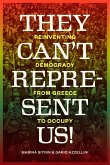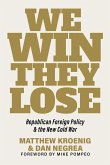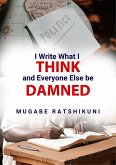It has never been more important for Americans to understand why the world both hates and loves the United States. In What They Think of Us, a remarkable group of writers from the Middle East, Europe, Asia, and Latin America describes the world's profoundly ambivalent attitudes toward the United States--before and since 9/11.
While many people around the world continue to see the United States as a model despite the Iraq war and the war on terror, the U.S. response to 9/11 has undoubtedly intensified global anti-Americanism. What They Think of Us reveals that substantial goodwill toward America still exists, but that this sympathy is in peril--and that there is an immense gap between how Americans view their country and how it is viewed abroad.
Drawing on broad research and personal experience while avoiding anecdotalism and polemics, the writers gathered here combine political, cultural, and historical analysis to explain how people in different parts of the world see the United States. They show that not all anti-Americanism can be blamed on U.S. foreign policy. America is disliked not just for what it does but also for what it is, and perceptions of both are profoundly shaped--and sometimes warped--by the domestic realities of the countries where anti-Americanism thrives. In addition to analyzing America's battered global reputation, these writers propose ways the United States and other countries can build better relations through greater understanding and respect.
While many people around the world continue to see the United States as a model despite the Iraq war and the war on terror, the U.S. response to 9/11 has undoubtedly intensified global anti-Americanism. What They Think of Us reveals that substantial goodwill toward America still exists, but that this sympathy is in peril--and that there is an immense gap between how Americans view their country and how it is viewed abroad.
Drawing on broad research and personal experience while avoiding anecdotalism and polemics, the writers gathered here combine political, cultural, and historical analysis to explain how people in different parts of the world see the United States. They show that not all anti-Americanism can be blamed on U.S. foreign policy. America is disliked not just for what it does but also for what it is, and perceptions of both are profoundly shaped--and sometimes warped--by the domestic realities of the countries where anti-Americanism thrives. In addition to analyzing America's battered global reputation, these writers propose ways the United States and other countries can build better relations through greater understanding and respect.









